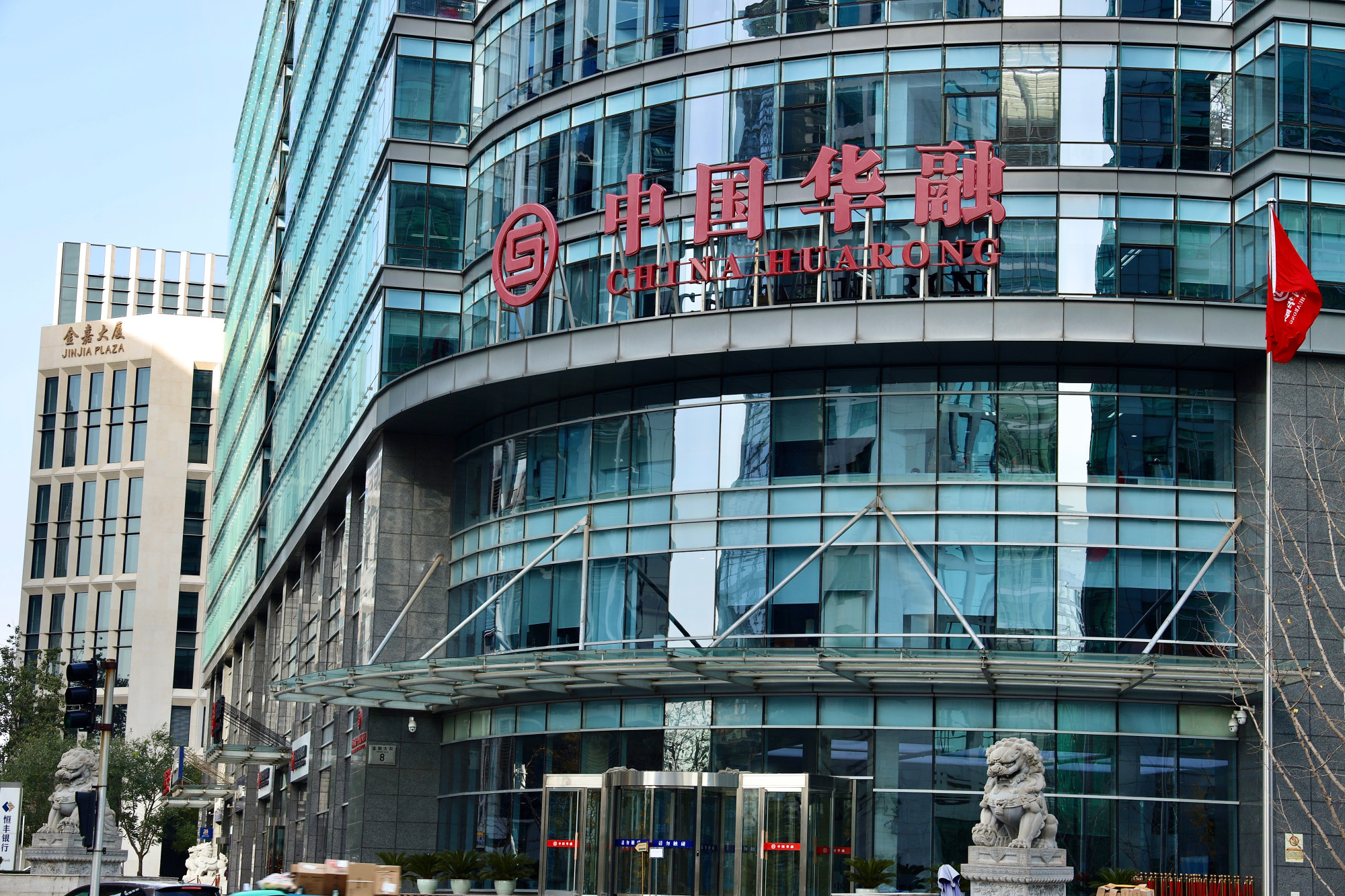
China’s four state-backed distressed asset managers downgraded by Fitch Ratings on reduced government support, property woes
- Fitch Ratings says the government’s propensity to provide timely extraordinary support to the national AMCs has weakened
- China’s property market slump and economic challenges are weighing on the AMCs’ asset quality and profitability and are pressuring internal capital generation, it said
Fitch Ratings downgraded China’s four state-backed, distressed asset managers, following its assessment that government support is set to weaken amid the ongoing property market crisis, which it said could weigh on their asset quality and financial strength.
The ratings for both China Cinda Asset Management and China Orient Asset Management were cut to A- from A, while those for China Huarong Asset Management and China Great Wall Asset Management were lowered to BBB from BBB+, the rating agency said in a statement issued late on Wednesday. Cinda’s rating outlook was stable while the outlook for the other three asset management companies (AMCs) was “rating watch negative”, it said.
A rating watch negative indicates that there is a heightened probability that the rating could stay at its present level or potentially be downgraded.
“The downgrades reflect our view that the government’s propensity to provide timely extraordinary support to the national AMCs has weakened in light of some AMCs’ financial underperformance and capital constraints, and the government’s inconsistent support stance to the sector,” Fitch said in the statement.
“These dynamics have reduced the AMCs’ ability to effectively perform their policy role of purchasing non-performing assets in the system.”

“China’s property market slump and economic challenges weigh on the AMCs’ asset quality and profitability, and pressure internal capital generation,” Fitch said.
Shares of both Cinda and Huarong ended the day unchanged with the Hang Seng Index finishing flat on Thursday. Orient and Great Wall are not listed.
The four AMCs were established in the aftermath of the Asian financial crisis in 1997 to offload non-performing loans worth about 1.4 trillion yuan (US$195.7 billion) from state-owned banks. After years of expansion, they have significant exposure to the financial sector and have taken on large amounts of debt through the bond market.
Distressed asset manager China Huarong buys US$1.7 billion stake in Citic
“Low capitalisation acts as a constraint on some of the AMCs’ policy role execution, as limited headroom against regulatory requirements impedes their ability to undertake policy-driven business,” Fitch said in the statement.
Cinda is best positioned among the four AMCs, thanks to its stronger capitalisation and profit generation capability relative to its peers, according to Fitch.
“We expect China Cinda to take on more policy responsibility to support financial stability while the three other AMCs manage through the downturn, underpinning the likelihood of government support,” it said.

